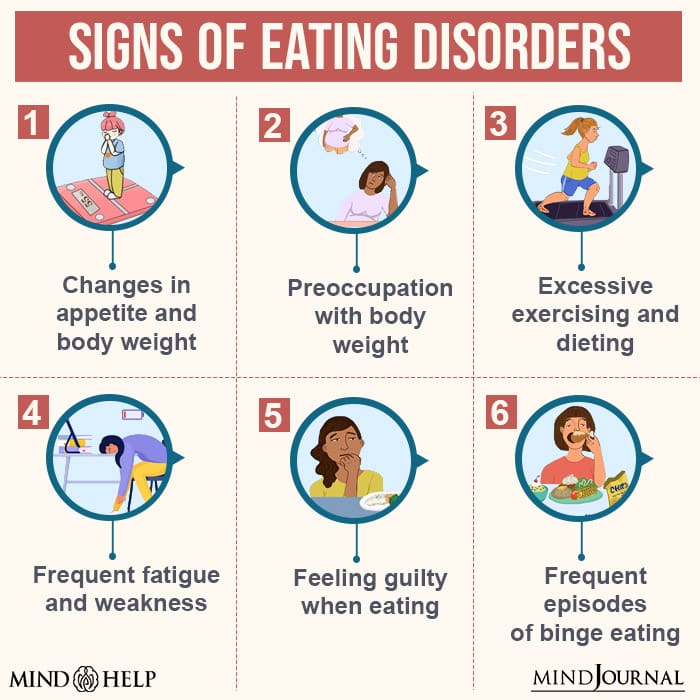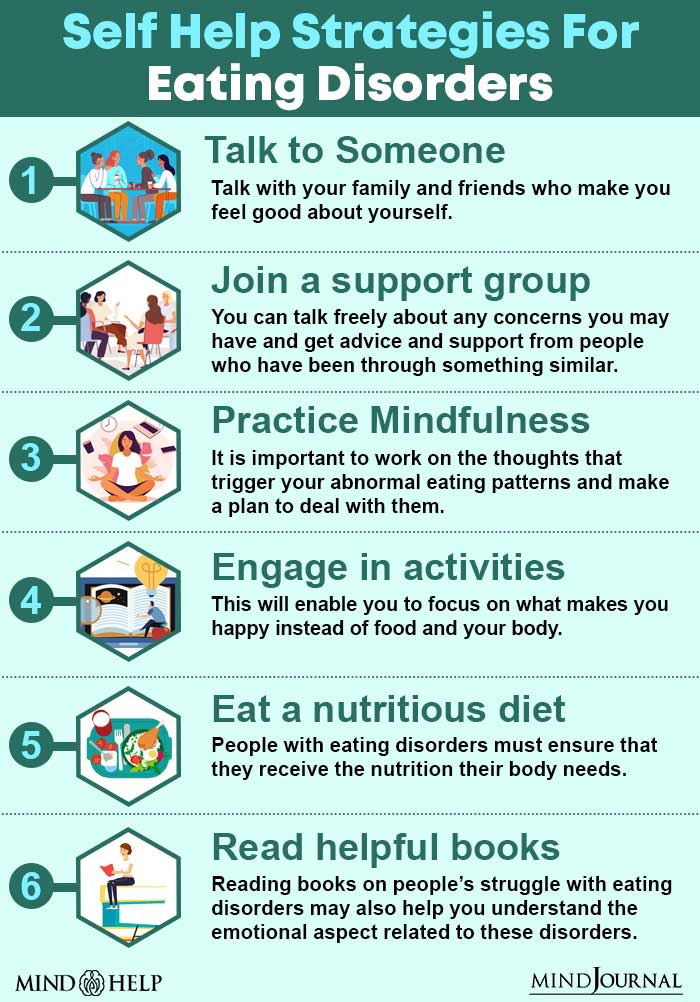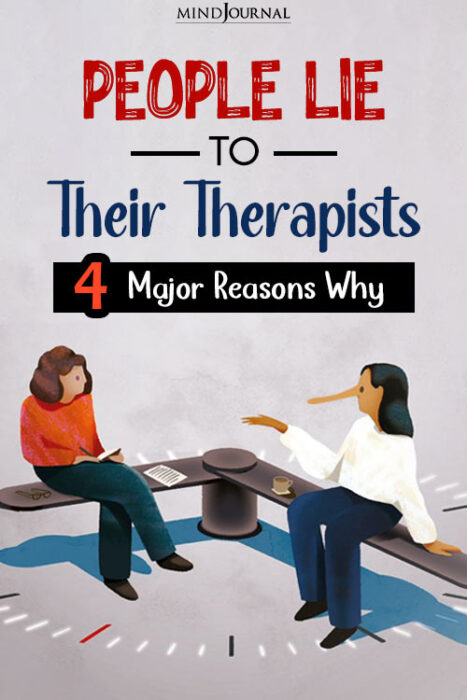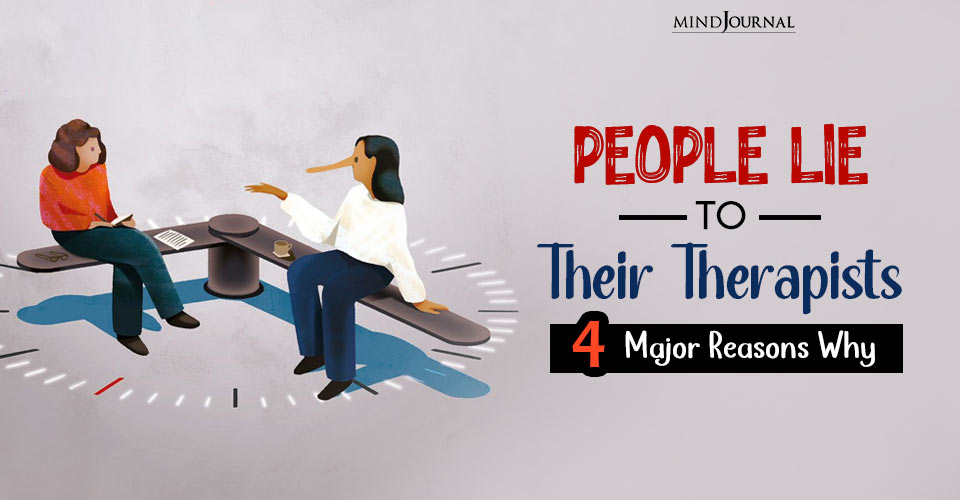Did you know that many people lie to their therapists when it comes to their eating disorders and body image issues? Let’s find out the reasons why.
Key Points
- Lying in therapy can be intentional, or the motivation may be less conscious.
- Shame is the most common reason for untruthfulness or omitting eating and body image concerns in therapy.
- People often won’t realize when they’re on their way to developing an eating disorder.
Humans are beautifully messy and complicated. Even when paying for their help, we don’t always share complete details with a therapist. Sometimes that’s intentional, and sometimes it comes from subconscious motives.
As a longtime eating and body-image specialist, I’ve repeatedly had the privilege of listening to people talk about their reasons for not being truthful or open about eating and body-image topics in therapy.
Decades ago, I did that myself—even though my food and body battles were daily downers and frustrations that could have used help. Nonetheless, I kept them from my own therapist for years.
Researchers Jacqueline Patmore and Barry Farber addressed this seemingly counterproductive phenomenon in their new study, “The Nature and Effects of Psychotherapy Clients’ Nondisclosure of Eating and Body Image Concerns.”
Related: 11 Signs You Need To Talk To A Therapist
Their team of researchers coded and analyzed responses from 45 participants who experienced eating or body image issues but lied about or concealed those difficulties during therapy.
And we’re not talking about a couple of sessions. The median time in treatment was reportedly over a year. At an average of three meetings a month, that’s more than 36 sessions.
You may be wondering: Why would people do this? Patmore and Farber’s research offers thematic explanations as to why. This post addresses the top four reasons, and I provide further commentary and possible answers based on clinical experience.

4 Reasons Why People Lie To Their Therapists About Their Eating Disorders
1. Shame
In the study, “shame was the code that most frequently emerged” as the reason for untruthfulness or withholding eating and body-image worries. The shame-related answers fell into three main themes.
a) “Shame and or embarrassment about having an eating or body-image concern”.
Probably like the research sample, in my practice, this comes up with people who have “mild” problems to “serious” eating disorders. Here are a couple of explanations.
- When people feel they’re failing at something seemingly as “basic” as eating or managing weight, they believe they’re “total” failures.
- People have labeled themselves as wholly “selfish,” “shallow,” or “stupid” because they can’t stop worrying about their food or body when there are bigger, “more important” difficulties in the world.
With the intensity, pain, and vulnerability behind these beliefs, it’s no wonder people won’t bring them up—even in therapy.
b) The body itself was seen as a source of shame.
The “body itself” refers to, for example, a specific body part or body characteristics, and when people experience body distortions, their eyes genuinely deceive them. (Although that might sound incomprehensible, here’s a way to potentially relate to it: Think of a funhouse mirror. What if that’s what you saw every time you came across your reflection?)
Sadly, many people won’t realize they’re experiencing body distortions. They’ll instead trust that what they see is reality. Body distortions are part and parcel of having an eating disorder—anorexia, bulimia, and other specified feeding or eating disorder in particular.
And the most vulnerable often won’t notice if their eating habits and body distortions are turning into an eating disorder.
Of course, someone who doesn’t have a clinical eating disorder can also be deeply ashamed of their appearance. Hyperfocus on any body part can make that body part seem massively prominent.
To no avail, they usually work to “fix” the problem (excessive make-up, boot camps, surgery). As a result, they feel they need to physically and verbally hide their sources of embarrassment from themselves and others.
Related: Questions To Ask Potential Therapists About Treating Complex Trauma
c) Shame resulting from perceptions of therapists’ judgment.
When people worry about their therapist’s judgment, it hurts my heart. The therapy room should feel like a judgment-free zone. Yet, I’ve heard horror stories about how therapists have responded with shock or disapproval when hearing about, for example, purging behaviors.
Furthermore, a lot of therapists have implicit thin bias. For many of us raised in Western society, our brains marinate daily in diet mentality and healthism. But few therapy training programs address diet culture or eating disorders in depth.
Tragically, therapists who are not savvy in eating and body image difficulties can unwittingly appear to judge someone’s eating habits as “discipline.”
2. To Avoid Unwanted Interventions
The study refers to “unwanted interventions” such as returning to inpatient settings, stopping treatment, or fixing eating pathology. Admittedly, these can be double binds.
For example, a therapist might refer to a higher level of care, a more specialized clinician, or nutritional support while adhering to what’s recommended to maximize treatment effectiveness.
Nonetheless, those “unwanted interventions” tend to feel like being controlled or rejected to the person receiving them.
3. The Wish to Speak About Other Clinical Difficulties
Patmore and Faber’s study showed that 69 percent of the sample went to therapy to address depression; anxiety was also frequently a presenting concern (53 percent). These people likely wanted relief from the sadness or worry that brought them to seek help.
This is another tricky situation. Unbalanced eating can create or increase depression and anxiety, the problems people want relief from.
If the people in the study didn’t mention their eating habits, they could have put time, money, and a ton of energy into therapy and not experienced sufficient relief—baffling both themselves and their therapists.
Related: How Do I Know If a Therapist is Right For Me? 10 Signs
4. The Belief That Therapy Can Not or Does Not Help
This theme tied with the “desire to speak about problems other than eating and body image,” ranking, thus pushing the top five to six technically.
The rationale seems straightforward. When someone has one foot out the door, it makes sense they wouldn’t fully disclose their personal, vulnerable secrets.

Bottom Line
Generally, people do their best to make sense of things. While lying or omitting things in therapy might sound counterproductive, there are usually valuable reasons for it.
Western societies tend to present a one-size-fits-all standard for health, appearance-acceptability, and weight. Unfortunately, our surroundings often don’t teach us that most diets fail or that genetics greatly influence our size, weight, and looks.
Instead, people often feel like failures for their real or perceived inability to fit into those one-size-fits-all standards. They frequently blame themselves.
It’s no wonder eating and body image problems are avoided or lied about in the therapy room. Patmore and Farber’s study states that future research should “incorporate additional questions about what it’s like to have body image issues, eating issues, or an eating disorder and the factors that make disclosure difficult in and out of therapeutic settings.” We hope that this happens soon.
Eating disorders have the second highest mortality rate of any psychiatric illness (after opioid abuse). Unfortunately, many people won’t know if they’re on their way to developing an eating disorder—or even that they have one—until things are devastatingly wrong.
As a field and society, we must get better at making people with eating and body image difficulties feel safe to share their whole selves in the therapy room—in any medical office, with friends, people they trust, and family. Silence can both feel safe and be harmful at the same time.
References:
Patmore, J. & Farber, B. A. (2022). The nature and effects of psychotherapy clients’ nondisclosure of eating and body image concerns. Eating Disorders, DOI: 10.1080/10640266.2022.2114585
Written By Alli Spotts-De Lazzer Originally Appeared On Psychology Today









Leave a Reply
You must be logged in to post a comment.